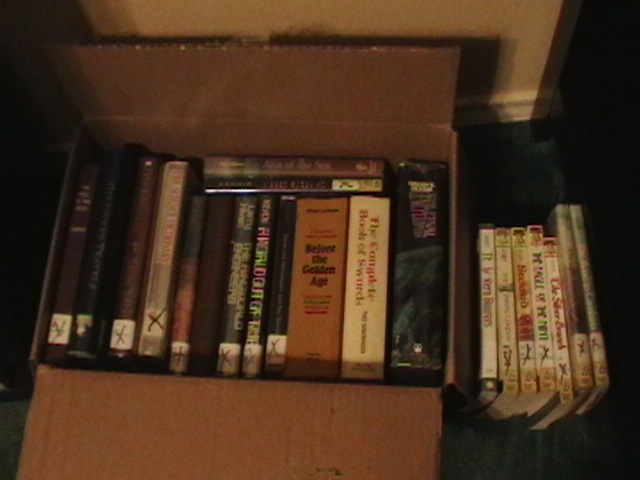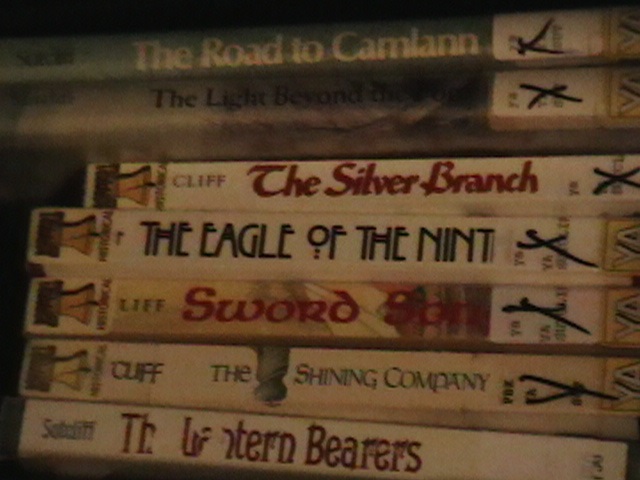
Photo by Ciara McDonnell
I preach plenty about trimming the fat from writing. Strunk, White and Zinsser command it, and I’ve learned it firsthand from dealing with limited space in ads, radio commercials and billboards.
Efficient writing is better writing.
But this isn’t some professional writing secret. You’ll read it on all the forums, hear it at all the conferences and even in your local writers’ group. Cut, cut, cut. Maybe it’s the growing popularity of flash fiction, maybe it’s the waning attention spans of the masses, but whatever the cause, the fact remains:
Skinny writing is in.
We’re all shaking our pages till the adverbs fall out, beating the paragraphs till the parentheticals flee, ever striving for that low, low word count.
The red ink flows in our lust for trim prose.
And what are we seeing as a result? Leaner literature?
Or malnourished manuscripts?
Are we perpetuating a healthy word diet – or an editing disorder?
There is a point when the art becomes emaciated, with wording so simple you can’t differentiate the work of one author from another. Cut too deep, and the voice will bleed right out of your sentences.
Cutting words is one of those rules you have to learn first, to break later.
First you learn how to make each word count. How to construct clear thoughts. How not to waste your readers’ time.
But then you have to find your voice: that special way of writing you have (or your narrator has) that no one else has. And that voice may require a few “unnecessary” words.
Once you know the mechanics of writing efficiently, you can start learning the art of writing uniquely.
What happens if you don’t?
I took the red pen to the three wordiest excerpts from the 5 fantastic examples of voice I posted two years ago. Here’s how they came out.
There is no doubt Marley was dead. The clergyman, clerk, undertaker, and chief mourner all signed the register of his burial. Scrooge Signed it. And Scrooge’s name was good upon ‘Change. Old Marley was as dead as a doornail.
I don’t know what is particularly dead about a doornail; I might regard a coffin nail as the deadest piece of ironmongery. But our ancestors’ wisdom is in the simile; and I won’t disturb it, or the Country’s ruined.
WORDS CUT: 60
Mr. Adams: The Hitchhiker’s Guide to the Galaxy
In the Western Spiral arm of the Galaxy lies a small yellow sun.
Orbiting this at about ninety-eight million miles is an insignificant blue-green planet whose primitive ape-descended life forms still think digital watches are cool.
This planet had a problem: most of its people were unhappy. Most of the suggested solutions for this problem involved the movements of small green pieces of paper, which is odd because it wasn’t the small green pieces of paper that were unhappy.
WORDS CUT: 48
Mr. Twain: The Adventures of Huckleberry Finn
You don’t know about me, unless you read “The Adventures of Tom Sawyer,” but that doesn’t matter. Mr. Mark Twain made that book, and told the truth, mainly. He stretched some things, but everybody lies sometimes, except Tom’s Aunty Polly, Mary, and the Widow Douglas.
WORDS CUT: 55
Feel that? That something missing? How it seems rushed?
I could have cut even more: Dickens’s entire second paragraph; several of the adjectives from Adams’s piece. But honestly, would there be anything left?
Learn to write efficiently, by all means. But don’t cut so much that you lose yourself.
—
Need help finding your voice? Sign up for Voice Week, November 4 – 8! You’ll have a chance to win a copy of Markus Zusak’s The Book Thief!
—

Are you over-editing?







